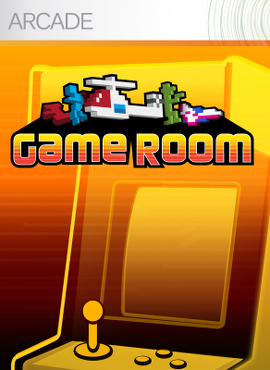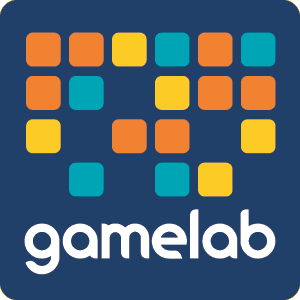Related Research Articles
A massively multiplayer online role-playing game (MMORPG) is a video game that combines aspects of a role-playing video game and a massively multiplayer online game.

Ultima is a series of open world fantasy role-playing video games from Origin Systems, Inc. Ultima was created by Richard Garriott. Electronic Arts has owned the brand since 1992. The series sold over 2 million copies by 1997.
Educational games are games explicitly designed with educational purposes, or which have incidental or secondary educational value. All types of games may be used in an educational environment, however educational games are games that are designed to help people learn about certain subjects, expand concepts, reinforce development, understand a historical event or culture, or assist them in learning a skill as they play. Game types include board, card, and video games.
The Avatar is the main player character and protagonist in the Ultima series of video games by Origin Systems. The character was first introduced as "The Stranger" in the 1981 role-playing video game Ultima I: The First Age of Darkness.
A virtual world is a computer-simulated environment which may be populated by many users who can create a personal avatar, and simultaneously and independently explore the virtual world, participate in its activities and communicate with others. These avatars can be textual, graphical representations, or live video avatars with auditory and touch sensations. Virtual worlds are closely related to mirror worlds.

Katie Salen Tekinbas is an American game designer, animator, and educator. She is a professor at the University of California, Irvine. Previously, she taught at DePaul University College of Computing and Digital Media, Parsons The New School for Design the University of Texas at Austin, New York University, and the Rhode Island School of Design. She has an MFA in graphic design from the Rhode Island School of Design.

Denki is an interactive television and console game developer based in Dundee, Scotland. The company is the developer of over 180 console and interactive television games, covering a range of platforms. Denki has worked extensively in the digital interactive television (IDTV) market, with the majority of their titles created specifically for digital interactive television DirecTV platform.

Whyville is an educational Internet site geared towards children from ages 8–14+ founded and managed by Numedeon, Inc. Whyville engages its users in learning about a broad range of topics, including science, business, art and geography. Whyville's users (Whyvillians) engage in virtual world simulation based games and role play sponsored by a wide range of governmental, non-profit, and corporate entities. In 2009, the website had a registered base of more than 7 million users.

Legends of Norrath was an online digital collectible card game by Sony Online Entertainment. Legends of Norrath is based on the massively multiplayer online role-playing games EverQuest and EverQuest II. Legends Of Norrath was playable from within either of the two games, or via a stand-alone client.

Daryl F. Gates' Police Quest: SWAT is the fifth game in the Police Quest series. It is a graphic adventure game released in 1995, and re-released in 2016 for Steam. With extensive use of FMV videos for its basic gameplay, the game required four CD-ROMs. The game received negative reviews from critics, but was a commercial success, with sales of over 1 million units by March 2000.

Game Room was a social gaming service for the Xbox 360 video game system, Microsoft Windows PCs, and Windows Phone 7. Launched on March 24, 2010, Game Room let players download classic video games and compete against each other for high scores. Players on both Xbox 360 and Windows PCs could access Game Room through their respective versions of Microsoft's Live online services. The servers shut down on October 31, 2017.
Gamification is the strategic attempt to enhance systems, services, organizations, and activities by creating similar experiences to those experienced when playing games in order to motivate and engage users. This is generally accomplished through the application of game-design elements and game principles in non-game contexts.
This list includes terms used in video games and the video game industry, as well as slang used by players.

Gamelab was an independent game studio in New York City, New York founded by game designer Eric Zimmerman and Peter Seung-Taek Lee in 2000. It is best known for creating Diner Dash, one of the most downloaded games of all time, as well as its two spin-off companies, the non-profit Institute of Play and the online game and community site Gamestar Mechanic.

The gamification of learning is an educational approach that seeks to motivate students by using video game design and game elements in learning environments. The goal is to maximize enjoyment and engagement by capturing the interest of learners and inspiring them to continue learning. Gamification, broadly defined, is the process of defining the elements which comprise games, make those games fun, and motivate players to continue playing, then using those same elements in a non-game context to influence behavior. In other words, gamification is the introduction of game elements into a traditionally non-game situation.

The Lord of the Rings: The Card Game is a non-collectible customizable card game produced by Fantasy Flight Games. As part of the Living Card Game (LCG) genre, it is a cooperative and strategic card game set in Middle-earth, a fantasy world featured in literary works by J. R. R. Tolkien, including The Hobbit and The Lord of the Rings. Its digital adaptation, titled The Lord of the Rings: Adventure Card Game, is published by Asmodee Digital for cross-platform play on Microsoft Windows, macOS, PlayStation 4, Xbox One and Nintendo Switch, being the "first ever digital LCG".

Pokémon TCG Online is a 2011 video game based on the Pokémon Trading Card Game developed by Dire Wolf Digital, a studio that was based in Denver, Colorado. The game is available for Microsoft Windows, macOS, iOS and Android. It was originally released in March 2011 under the name of Pokémon Trainer Challenge as a browser-based game.

Paladins: Champions of the Realm is a 2018 free-to-play online hero shooter video game by Hi-Rez. The game was developed by Evil Mojo, an internal studio of Hi-Rez and was released on May 8, 2018 for Microsoft Windows, PlayStation 4, and Xbox One, followed by a Nintendo Switch version released on June 12, 2018.

A digital collectible card game (DCCG) or online collectible card game (OCCG) is a computer or video game that emulates collectible card games (CCG) and is typically played online or occasionally as a standalone video game. Many DCCGs are types of digital tabletop games and follow traditional card game-style rules, while some DCCGs use alternatives for cards and gameboards, such as icons, dice and avatars. Originally, DCCGs started out as replications of a CCG's physical counterpart, but many DCCGs have foregone a physical version and exclusively release as a video game, such as with Hearthstone.

Mathletics is an online, educational website launched in 2005.
References
- ↑ "More About Gamestar Mechanic" . Retrieved 6 April 2012.
- ↑ "Gamestar Mechanic Credits" . Retrieved 6 April 2012.
- ↑ Gamestar Mechanic [@GamestarMech] (Sep 29, 2020). "🚨Important news about Gamestar Mechanic🚨" (Tweet). Archived from the original on September 30, 2020 – via Twitter.
- ↑ Gamestar Mechanic [@GamestarMech] (Nov 20, 2020). "BIG NEWS! On Dec 15th we'll release a temp solution that allows you to continue to use Gamestar Mechanic after the end of Flash & until the launch of what comes next. We're sure you have questions so check out the FAQ below & subscribe to our newsletter: insiders.elinemedia.com" (Tweet). Archived from the original on March 14, 2022 – via Twitter.
- ↑ "What you can do with Gamestar Mechanic". Gamestar Mechanic. Retrieved February 3, 2012.
- ↑ Stefanie Olsen (November 1, 2009). "Educational Video Games Mix Cool With Purpose". New York Times. Retrieved February 3, 2012.
- ↑ "Gamestar Mechanic - Gamestar Mechanic App".
- ↑ "E-Line Media". E-Line Media. Retrieved 4 March 2013.
- ↑ "Search for 1, which should return a good chunk of them (searches return games by ID)" . Retrieved October 15, 2020.
- ↑ "Search for 1, which apparently returns all users" . Retrieved October 15, 2020.
- ↑ "Best Websites for Teaching and Learning". American Association of School Librarians. Archived from the original on 2012-09-20. Retrieved 2012-09-20.
- ↑ "Winners Announced for Second Annual Kids at Play Interactive "KAPi" Awards at CES 2011". Children's Technology Review. Retrieved 6 April 2012.
- ↑ "2011 International Serious Play Award Winners Announced". Educational Games Research. Retrieved 6 April 2012.
- ↑ "2011 Festival: The Finalists". Indiecade. Retrieved 6 April 2012.